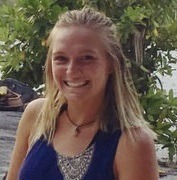
I’ve been traveling for over four years now and I still feel like a newbie for the first few weeks of every assignment. Below are some tips I have discovered for mastering being the newbie. Several of these are pretty obvious to “adulting”, but hopefully I’ll list some new ideas and maybe serve as a checklist for the no-brainers.
Take Notes On Everything
One of the best habits I learned was to write things down. I can’t tell you how many times I asked the same questions over and over because I would forget the answers in such a fast-paced environment. Things such as door codes, phone numbers, charting requirements, and user logins live on the front page of my binder. Having this information handy will save you time. It’s such a pain and it looks bad to be waiting around for someone to have a free moment so you can ask them simple questions that have already been answered. Anytime you ask a question, simply write it down. This habit pays off!
Be Fully Present During Orientation
Hospital orientations are redundant and it’s easy to daydream during the long presentations, but even if you have a lot of experience, try to stay alert and attentive. Get as much rest before as you can, bring coffee or tea for the caffeine, and don’t eat a sleepy meal at lunch. Take notes on the information you’ll need so your transition on the unit will be smoother. Be sure to know about emergency procedures and phone numbers. Be extra attentive during computer chart orientation, because although you may know the system they use, there will often be slight differences. Every hospital does charting a little different and the sooner you learn how to master a new one, the better. We all know the stress and time behind charting, so I can’t stress enough to learn differences as quickly as possible.
Get To Work Early
Be sure to get an early start to your day for the first few weeks. Being comfortable, calm, and organized are great ways to set yourself up for success. Aim to not be rushed before report starts and show up with enough time to get your patient list, write the names down, and even look up any information you may need. As a newbie, you’re not going to be familiar with the nurses and their work habits. It’s so helpful and important to know your patients and any questions you might have. It’s the time to dialogue on tasks that still need to be completed or information that may make your shift smoother. Otherwise, you’ll be finding out on your own and/or learning the hard way after the nurse has already left and any leftover problems are your responsibility.
Bring Your Lunch
This is the secret to a smooth lunch break! Since you’re at a new hospital, chances are you’re not familiar with the cafeteria scene. It could be awesome with delicious food, but that’s certainly not always the case. The worst thing is running yourself to the ground on the unit and not getting a nutritious meal on your break to recharge you. Do yourself a favor and bring your food to start with, and maybe the whole contract. Not only will you save money and time, but you’ll also be stoked to know you have a delicious meal to revive you! To add to that, you don’t have to deal with the stress of waiting in line and losing critical rest time on your break.
Come To Work Charged
Being a newbie can be overwhelming to say the least. I can’t recommend self-care enough, especially during the first few weeks of the assignment. You’re going to be running around a little more than usual as you get in the flow of things. You might even be getting to work early and leaving late. Even though you can be exhausted after a long shift, remember to leave a little window for nurturing yourself. Do some light stretching after work or even meditation. I find it important and helpful to turn off the “noise” for a short time every day. Whatever it is that helps you get centered, do that. You need to find balance in these long works days so the stress isn’t as impacting on your health and you can smoothly sail through your workdays.
Having great habits and being an expert in adaptation will make your transitions much better and hopefully, this article gave a little insight from one travelling clinician to another.

